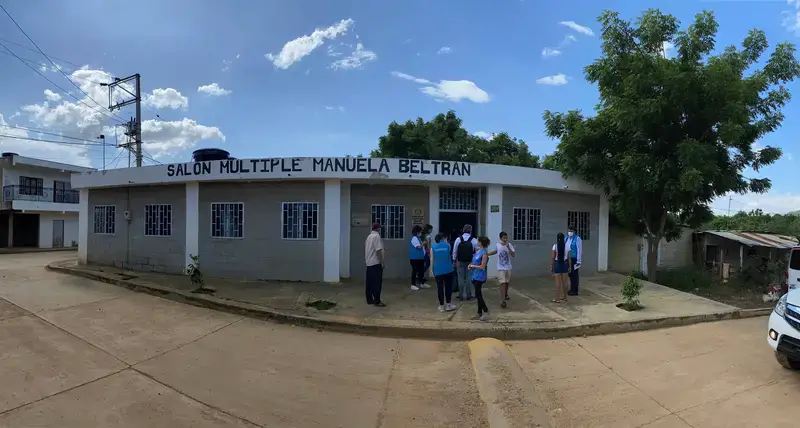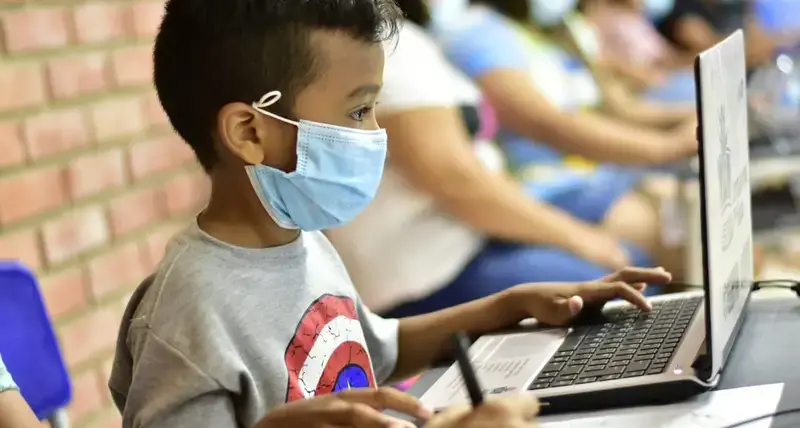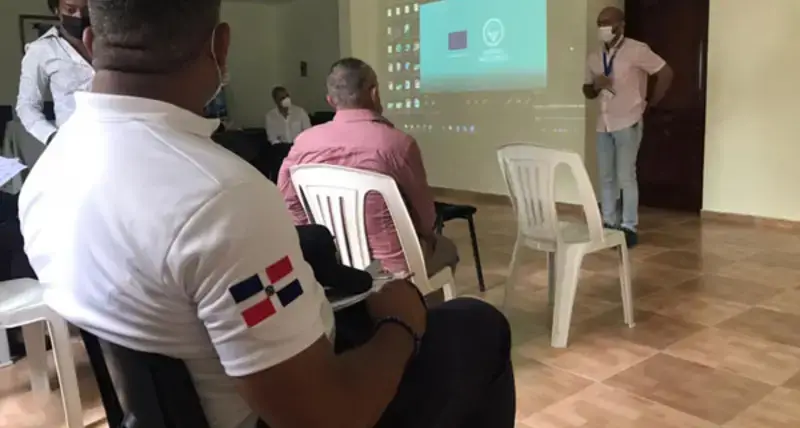Overview
Inclusive Cities, Communities of Solidarity is designed to show that refugees and migrants from Venezuela can make a real contribution to socio-economic and cultural diversity in their host cities and communities across Latin America. Through an inclusive urban planning perspective and action that gives refugees and migrants a voice and a chance to take part, urban communities can promote intercultural dialogue, social cohesion, and integration. The project seeks to help build strategies that local authorities could implement to this effect. In other words, it uses an innovative territorial approach to identify refugees and migrants interactions with local communities, and in doing so, enable local authorities to boost socio-economic opportunities for the population as a whole.
The Challenge
Given the impact of Venezuelan migration on the cities of Latin America and the Caribbean, the European Union has decided to support the strategic alliance between the United Nations High Commissioner for Refugees (UNHCR), also known as the UN Refugee Agency, the International Organization for Migration (IOM), and the United Nations Human Settlements Programme (UN-Habitat) for the project “Inclusive Cities, Solidarity Communities.” The project seeks to implement innovative actions from a perspective that incorporates attention to and protection of refugees and migrants, medium- and long-term socioeconomic integration, migratory governance, and inclusive, sustainable urban development. Currently, the project is underway in nine pilot cities and six countries in Latin America and the Caribbean.
The project promotes an innovative urban-territorial focus that addresses existing vulnerabilities holistically and inclusively. This facilitates the materialization of opportunities that result from migration in the medium- and long-term, allowing for the construction of diverse and solidarity communities. Such opportunities also include the development of more prosperous and inclusive cities, all under the universal principle of the “right to the city” as a framework for the common good.
Key Results
Refugees and migrants provide and enrich the cultural diversity of the cities and communities where they settle. The project “Inclusive Cities, Communities of Solidarity” is a practical way to demonstrate the value of this population in Latin American Cities. The project “Inclusive Cities, Communities of Solidarity” is currently developing a territorial open participatory planning strategy that can be led and implemented by the local authorities.
Furthermore, the project is an innovative cooperation mechanism that generates and disseminates “hands-on” knowledge of the local dimension of refugees and migrants’ integration in Latin-American cities by strengthening local capabilities regarding the socioeconomic and territorial inclusion of Venezuelan communities. Also, the project aims to sensitize decision-making actors about the need to consider all the population in vulnerable condition on a territory, without distinction of refugees, migrants, and locals, to promote integrated responses with the potential to mitigate the impact of COVID-19 while considering a differentiated approach to mitigate the gaps of most vulnerable communities.
The impact achieved at target cities is:
- Technical support to policies and planning instruments of local governments to propose a differentiated approach for refugees and migrants aiming to promote their medium and long-term integration.
- Formulation of Human Mobility profiles as tools that presents a baseline of the impact of migration in cities and recommendations to transform migration into a territorial asset.
- Formulation of Urban monitoring viewer for target cities as a geographic information system that provides multisector strategic data for decision making.
- Formulation of Urban inclusion market as a tool for decision-makers to plan, and monitor the impact of territorial actions aiming to promote equal access to rights and opportunities in the city.
- Operation of refugees and migrant´s attention centers on target cities.
- Implementation of social cohesion campaigns against discrimination and xenophobia
- Strengthen communities ties and empowerment through the implementation of co-creation workshops for the definition of territorial actions to improve most vulnerable communities living conditions, including refugees, migrants, and host populations.
- Training to communities to promote actions for the effective integration of refugees and migrants.
- Virtual training to local officials to strengthen local capabilities to adequately respond to territorial challenges towards effective integration of refugees and migrants.
- Cash-based interventions have benefited the most vulnerable communities to overcome the COVID-19 crisis by non-conditional resources used to satisfy fundamental needs.
Gallery

Host Community Center
Space where community action meetings take place and the development of workshops for the community.

Block by Block Workshop
Child working in block by block workshop in Cucuta.

Workshop with local authorities
Developing space co-creation workshops with authorities of the Dominican Republic.